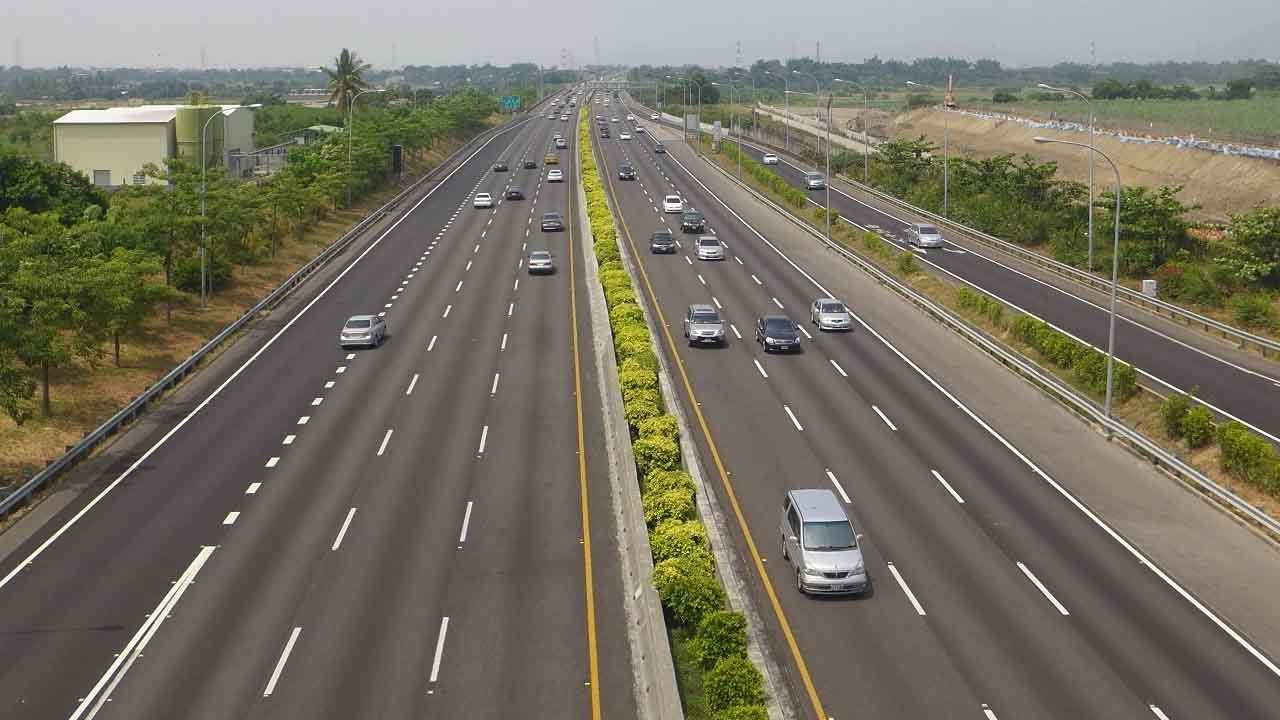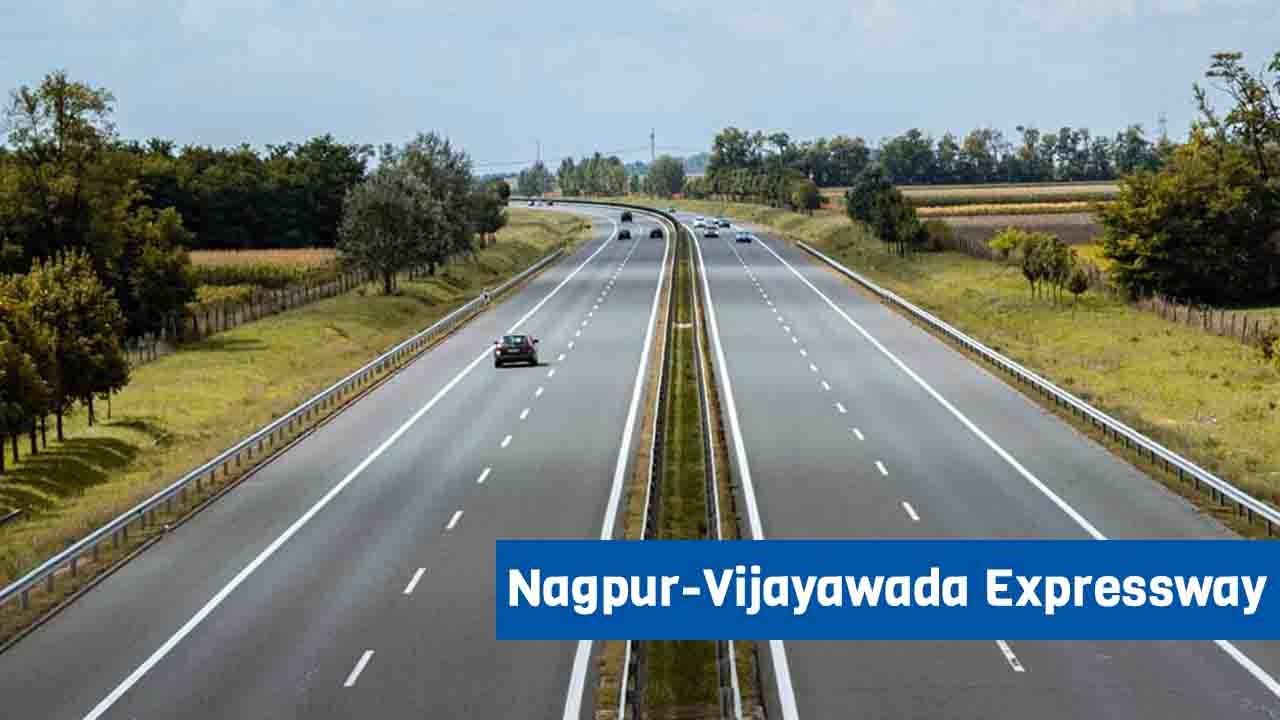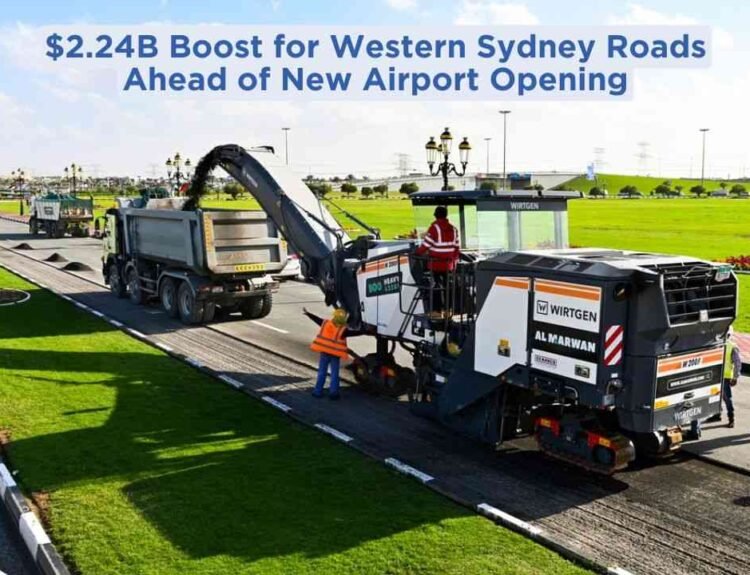The government approved eight national high-speed road corridor projects spanning 936 km with an investment of Rs 50,655 crore to improve logistics efficiency and connectivity across the country. Implementing these eight crucial projects will generate about 4.42 crore man-days employment directly and indirectly.
The Cabinet Committee on Economic Affairs has approved some projects, including the 4-lane Kharagpur-Morgram National High-Speed Corridor, 6-lane Agra-Gwalior National High-Speed Corridor, 4-lane Ayodhya Ring Road, 4-lane Tharad-Deesa-Mehsana-Ahmedabad National High-Speed Corridor, 4-Lane Section between Pathalgaon and Gumla of Raipur-Ranchi National High-speed Corridor, and 6-Lane Kanpur Ring Road.
“‘Transformative’ boost to India’s infrastructure landscape! “The Cabinet’s approval of 8 National High-Speed Road Corridor Projects at an expenditure of over ₹ 50,000 crore will have a ‘multiplier’ effect on our economic ‘growth’ and boost ’employment’ opportunities. It also underlines our commitment to a futuristic and connected India.” Prime Minister Narendra Modi in a tweet on X.
TRANSFORMATIVE boost to India’s infrastructure landscape!
The Cabinet's approval of 8️⃣ National High-Speed Road Corridor Projects at an expenditure of over Rs. 50,000 crore will have a MULTIPLIER EFFECT on our economic GROWTH and boost EMPLOYMENT opportunities.
It also… pic.twitter.com/fim8aNP2Tr
— Narendra Modi (@narendramodi) August 2, 2024
Table of Contents
- 1 Agra-Gwalior National High-Speed Corridor
- 2 Kharagpur-Morgram National High-Speed Corridor
- 3 Tharad-Deesa-Mehsana-Ahmedabad National High-Speed Corridor
- 4 Ayodhya Ring Road
- 5 Pathalgaon – Gumla (Raipur-Ranchi National High-Speed Corridor)
- 6 Kanpur Ring Road
- 7 Guwahati Bypass
- 8 Nashik Phata-Khed Corridor
Agra-Gwalior National High-Speed Corridor
The Agra-Gwalior National High-Speed Corridor, which is 88 km long, will be developed as a fully access-controlled 6-lane corridor, and will be constructed at a cost of Rs 4,613 crore, the release said.
The project will complement the existing four-lane national highway to increase the traffic capacity in the Agra-Gwalior section of the Srinagar-Kanyakumari North-South Corridor by more than two times.
The corridor will enhance connectivity to major tourist destinations of Uttar Pradesh (such as Taj Mahal, Agra Fort, etc) and Madhya Pradesh (such as Gwalior Fort, etc). It will significantly reduce logistics costs, as the distance from Agra to Gwalior will be reduced by 7 percent and travel time by 50 percent.
Kharagpur-Morgram National High-Speed Corridor
The 231-km Kharagpur-Morgram National High-Speed Corridor, which will cost a total of ₹10,247 crore, will be built in Hybrid Annuity Mode (HAM).
The new corridor will complete the existing two-lane national highway, increasing the traffic capacity between Kharagpur and Morgram by almost five times, the release said. It will facilitate traffic between the north-eastern part of the country, including West Bengal, Odisha, and Andhra Pradesh, on the one hand, and the other, on the other, the release said.
Tharad-Deesa-Mehsana-Ahmedabad National High-Speed Corridor
The Tharad-Deesa-Mehsana-Ahmedabad National High-Speed Corridor, which is 214 km long, will be built in Build-Operate-Transfer (BOT) mode, at a cost of ₹10,534 crore.
The Tharad-Ahmedabad corridor will connect two major national corridors of Gujarat state, the Amritsar-Jamnagar corridor and the Delhi-Mumbai Expressway. It will provide seamless connectivity to cargo vehicles coming from industrial areas of Punjab, Haryana, and Rajasthan to major ports of Maharashtra (JNPT, Mumbai, and the newly-approved Wadhawan port)
Ayodhya Ring Road
The 68 km long Ayodhya Ring Road will be developed in Hybrid Annuity Mode (HAM) at a cost of Rs 68 crore. The ring road will reduce congestion on the national highways passing through the city, making it easier for pilgrims to visit the Ram temple.
Pathalgaon – Gumla (Raipur-Ranchi National High-Speed Corridor)
The 137-km long Pathalgaon and Gumla of Raipur-Ranchi National High-Speed Corridor will be developed in Hybrid Annuity Mode (HAM) at a total cost of ₹4,473 crore.
It will enhance connectivity between mining areas in Gumla, Lohardaga, Raigarh, Korba, and Dhanbad and industrial and manufacturing areas in Raipur, Durg, Korba, Bilaspur, Bokaro and Dhanbad to complete the corridor.
Kanpur Ring Road
The 47-km-long Kanpur Ring Road will be constructed in engineering, procurement, and construction mode (EPC) at a cost of ₹3,298 crore. This section will complete the six-lane national highway ring around Kanpur.
Guwahati Bypass
The widening and improvement of the existing Guwahati bypass will be carried out on a Build-Operate-Toll (BOT) mode, which will be 121 km long and will be taken up in three phases at a cost of ₹5,729 crore. A major bridge will also be constructed over the Brahmaputra River under the project.
Nashik Phata-Khed Corridor
The 30-km-long elevated Nashik Phata-Khed corridor will be built on a Build-Operate-Transfer (BOT) basis.
The elevated corridor will provide seamless high-speed connectivity to traffic between Pune and Nashik via Chakan, Bhosari, and other industrial centers on NH-60. The corridor will also ease extensive congestion around Pimpri-Chinchwad.
Infrastructure development is crucial for the economic prosperity of a country and for improving the quality of life of its citizens. Every rupee spent on infrastructure has an impact of about 2.5 to 3.0 times on GDP.
The government has adopted a corridor-based highway infrastructure development approach, which focuses on ensuring consistent standards, user amenities, and logistics efficiency, while the earlier project-based development approach focused on resolving local congestion areas, the release said.
“This corridor approach has identified a 50,000 km high-speed highway corridor network through scientific transportation studies based on GSTN and toll data that will help transform India into an over $30 trillion economy by 2047,” the release said.










